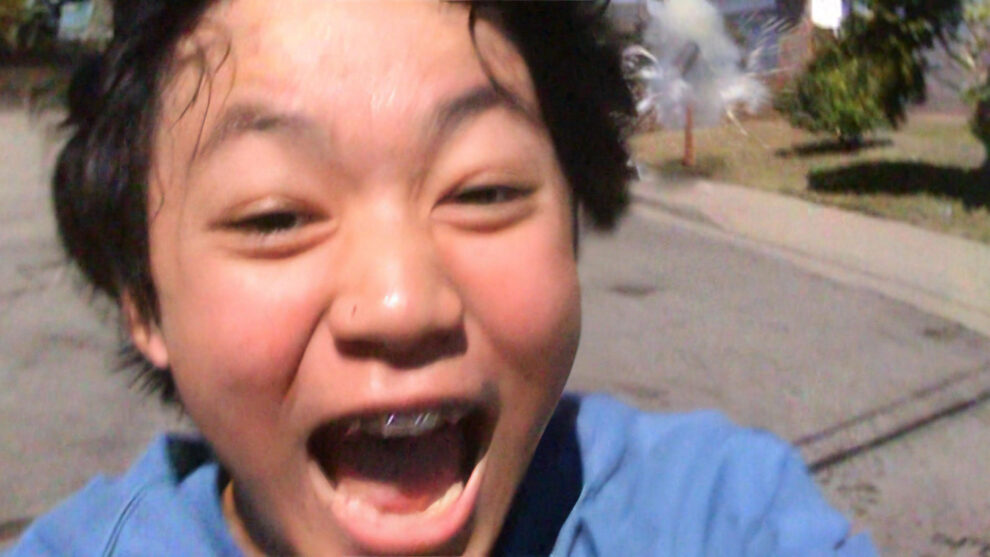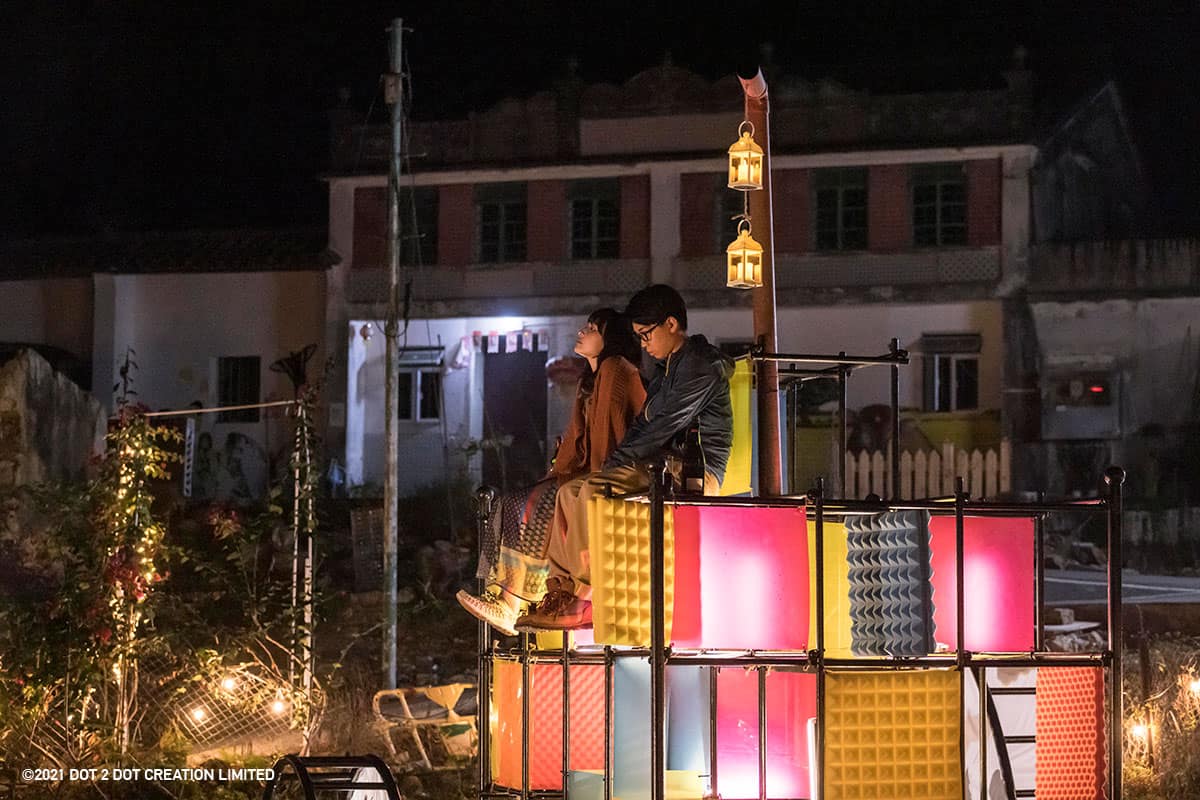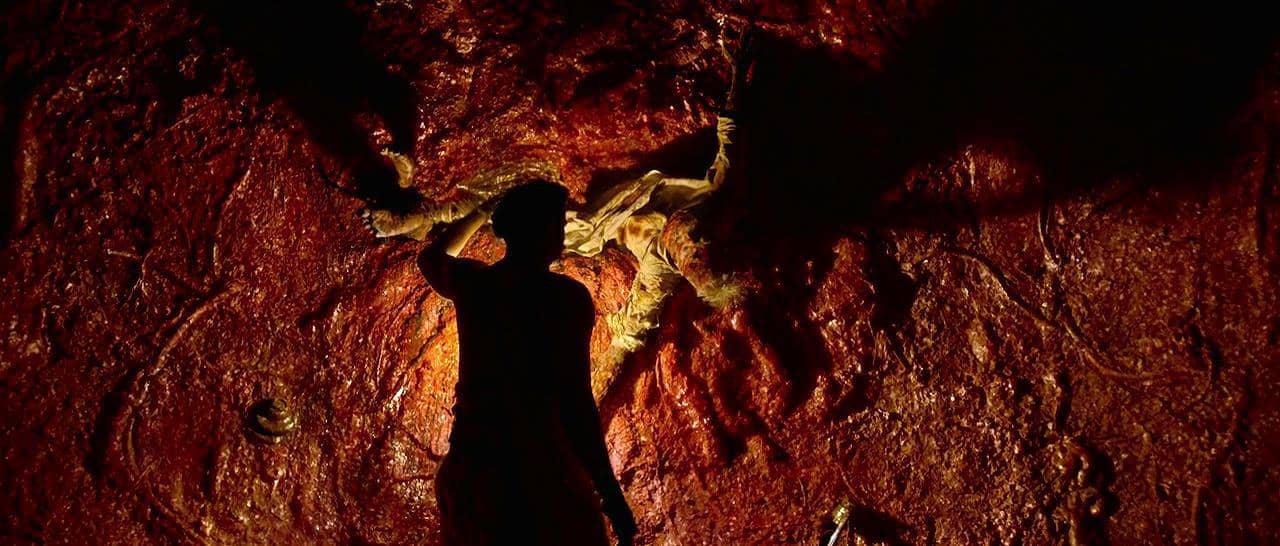It is hard to fully capture into words the electrifying excitement of the room during the world premiere of Sean Wang's debut feature, “Dìdi (弟弟)”. Part of this might have been because of the audience; it seemed like half the crowd had been associated with Wang in some way, as cast, family, or friends. Part of it may have been because the film was the only Asian American entry this year in the US Dramatic Competition, which markedly departs from last year (which saw at least 3 selections). And, perhaps, part of it may be because of Sean Wang's own star on the rise. As a previous Sundance Institute Ignite Fellow and as a current Academy Award-nominated director (with short “Nai Nai & Wài Pó” in the running for this year's Oscars), Sean Wang has been at the forefront of attention of Asian American cinema as of late.
Accordingly, the audience was incredibly reactive. Folks cheered and sighed, booed and cried during the eventful 91 minutes of the film. “Dìdi (弟弟)”, which means “younger brother” in Mandarin, unfolds in the summer of 2008 in Fremont, California. It centers on the growing pains of angsty Taiwanese American teenager Chris Wang (Izaac Wang). Chris is like any other adolescent American boy of the early 2000s. His summer plans are fairly simple. First, he wants to ask out his crush, Madi; second, he wants to skateboard, and possibly make videos about skating; and finally, he just really wants to look cool. These goals seem to be intertwined and mutually destructive, however, as Chris finds himself entangled in one messy social situation after another. As he fumbles his relationships – first with his childhood buddies, then with Madi, and finally with his own family at home – he comes to realize that, in the end, he does not need to prove himself to anybody save for himself. True “cool” stems from within.
During the Q&A, Sean Wang described the film as a “time capsule to his own adolescence.” Indeed, the period details, especially on the World Wide Web, of the mid-2000s feel fondly remembered. Chris agonizes over a single emoji over AIM chat; Myspace and Facebook profiles indicate his friendship status; early YouTube tutorials and one unlucky apple slice teach him how to kiss. The film excels in capturing the awkwardness of youth in an early Internet era, one in which the parasocial world of the Internet emphasizes IRL relationships at once. Perhaps part of this is Sean Wang's intuitive rhythm. Instead of tracking the smooth sail of a cursor across the screen, he makes the most of the dramatic pause. The computer screen then becomes a dynamic space capturing not just what is sent, but also loaded with overwhelming hesitation of the feelings left unsaid.
The script is definitely not for everyone, however. Similar to “Eighth Grade” (Bo Burnham, 2018), Sean Wang runs with the dialogue of the era. As a result, the film's immersion in boyhood is so unapologetically, politically incorrect, but is spot on for what it was. Casual homophobic remarks, schemes to get one's “dick wet,” and a lot of cussing (which was difficult to manage, apparently, according to the teenage cast) maximizes the cringe of Chris and his many boys. Sibling spats between Chris and his collegebound sister, Vivian (Shirley Chen) give them leeway to sling around not-so-feminist insults. Internalized shame about his Asian American identity directs disrespectful language towards his immigrant mother (Joan Chen). It's a challenging balance, to return to the vernacular of 2008 in 2024. Each time Chris toes the line a bit too far, however, Wang reigns it in. The adolescent humor is just as mortifying as it is amusing, but more importantly, is irreverently honest to the times.
In the realm of performance, protagonist Izaac Wang deftly adopts to the technologies of the era, from fluently tapping his phone keyboard multiple times to get a letter to swinging around a camcorder. He shines most in his companionship with his best friends, portrayed by first-time actors Raul Dial and Aaron Chang (playing Fahad and Soup, respectively), which is perhaps indicative in the Special Jury Award for Ensemble awarded to them at Sundance. A real community effort in making the film is notable too, with the inclusion of Sean's own grandmother, Chang Li Hua, as Nai Nai.
All in all, Sean Wang's narrative feature is not innovative by any means. The story structure is typical; it lures its audience in with humor in the beginning, builds up the conflict, and brings it to a resolution at the end. “Dìdi (弟弟)” is, however, guaranteed to be a good time, especially for millennials who spent any amount of time online. The crowd-pleaser walked away with an Audience Award in US Dramatic Competition at Sundance, and small wonder. The film feels as deeply personal as it is universal – or, as Sean Wang referenced his own family in the Q&A: “Thank you, I'm sorry, and I love you.”
“Dìdi (弟弟)” played in Sundance Film Festival 2024, and distribution is managed by Focus Features.















